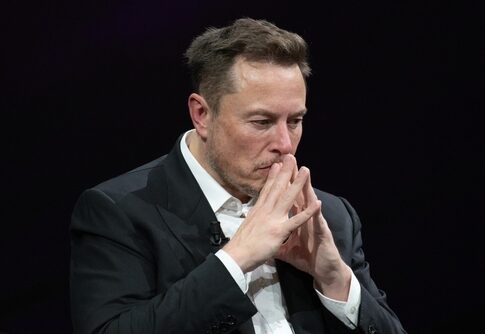According to Elon Musk, the federal government has “magic money computers” that generate money without supervision, which could be “the biggest scam of all time.” These systems are used by the Departments of Defense, State, Treasury, and Health and Human Services. $1.7 billion worth of 239 unnecessary contracts were recently terminated by the Department of Government Efficiency (DOGE). Musk discussed his research when he appeared on Senator Ted Cruz’s Verdict podcast.
Uncovering Government’s “Magic Money Computers”
The head of the Department of Government Efficiency (DOGE), Elon Musk, has expressed grave concerns about what he refers to as “magic money computers” that are in use across the federal level. Musk recently stated on Senator Ted Cruz’s Verdict podcast that these systems have been granted unheard-of power to print money without the necessary checks and balances. According to Musk, these computers essentially generate funds “out of thin air,” operating outside normal budgetary constraints and oversight mechanisms that typically govern federal spending.
“I call a magic money computer any computer which can just make money out of thin air,” Musk explained during the interview, highlighting the fundamental problem with these systems. The billionaire entrepreneur identified 14 such computers currently active across multiple federal agencies, including the Departments of Treasury, Health and Human Services, State, and Defense. These findings suggest a widespread issue affecting some of the government’s most critical institutions and potentially impacting taxpayer dollars on a massive scale.
The original magic money computer.$MMC 2TK6MgLTmHDhmdh4EtdnBkYKZPkcjMp6cj3gcWhqpump pic.twitter.com/ANdKwSVDlP
— AlphaCove (@AlphaCove) March 17, 2025
Insufficient Financial Transparency
The revelation points to a troubling lack of transparency in government financial systems. During his conversation with Senator Cruz, Musk challenged common assumptions about how government spending is tracked and monitored. The public generally expects that government finances are carefully tracked, with departments communicating effectively to maintain accountability for taxpayer funds. However, Musk’s findings suggest a far different reality, where financial controls may be significantly weaker than previously understood.
“You may think that the government computers all talk to each other, they’re synchronized, they add up what funds are going where and it’s coherent and that the numbers you’re presented as a senator are the real numbers,” Musk stated, with Senator Cruz responding simply, “One would think.”
The decentralized nature of these financial systems potentially allows for spending that occurs without proper congressional authorization or oversight. This situation raises serious questions about constitutional checks and balances, as Congress is supposed to control the federal purse strings. If departments can independently generate or allocate funds, it undermines fundamental principles of American governance and fiscal responsibility that have been established since the nation’s founding.
So, where could a regular citizen acquire one of these government “magic money computers?”
Magic Money Computer: It just issues payments, they just send money, out of nothing. pic.twitter.com/NpeDha6Ovu
— Art Jonak (@ArtJonak) March 17, 2025
The Cost-Cutting Mission of DOGE
The Department of Government Efficiency, headed by Musk, has already begun taking action to address wasteful spending across federal agencies. In a recent initiative, DOGE canceled 239 government contracts deemed wasteful, resulting in savings of approximately $1.7 billion. These canceled programs included studies that many taxpayers might question as essential government expenditures, such as research on cannabis use among sexual minority gender diverse individuals and social networks among black and Latino sexual minority men in New Jersey.
This aggressive audit represents just the beginning of DOGE’s mission to identify and eliminate unnecessary government spending. The department appears to be conducting a systematic review of federal expenditures, targeting programs that fail to demonstrate clear value to taxpayers or fall outside what many would consider core government functions. The discovery of these “magic money computers” adds another dimension to this already challenging task, suggesting that unauthorized spending may be even more widespread than initially thought.
Wider Consequences for Reforming the Government
The existence of these financial systems points to potentially deeper structural issues within federal agencies. If government departments can indeed create and allocate funds without proper oversight, it suggests fundamental flaws in how the federal government manages taxpayer dollars. This could help explain the persistent growth in federal spending and debt despite periodic efforts at fiscal restraint. For taxpayers concerned about government waste and fiscal responsibility, Musk’s findings offer a troubling glimpse into systemic problems that may require significant reforms to address.
As DOGE continues its work, the focus appears to be not just on cutting individual wasteful programs but on identifying and addressing structural issues that enable such waste to occur in the first place. The revelation about these “magic money computers” suggests that meaningful government reform may require fundamental changes to how federal finances are managed, tracked, and overseen. Whether such reforms will gain traction remains to be seen, but Musk’s work has certainly highlighted issues that many fiscal conservatives have long suspected existed within the federal bureaucracy.


